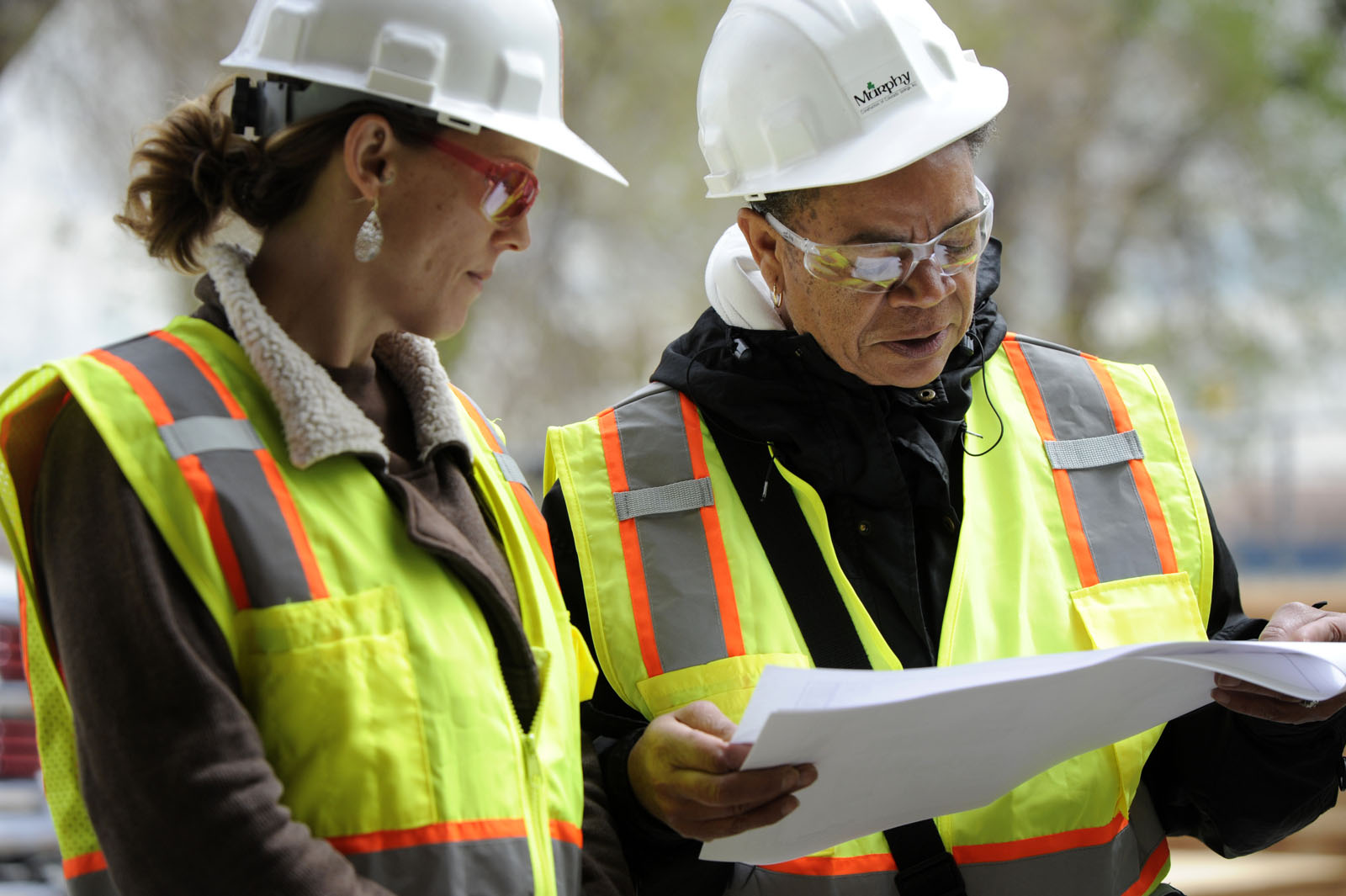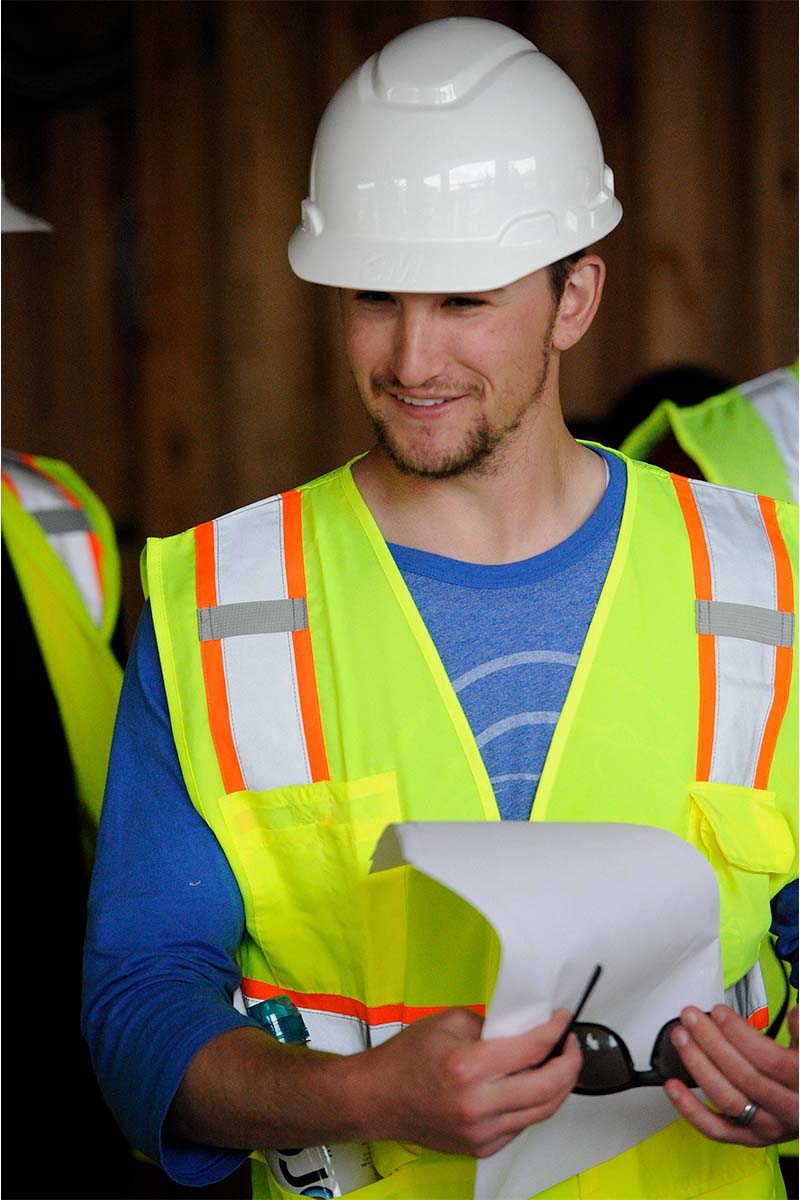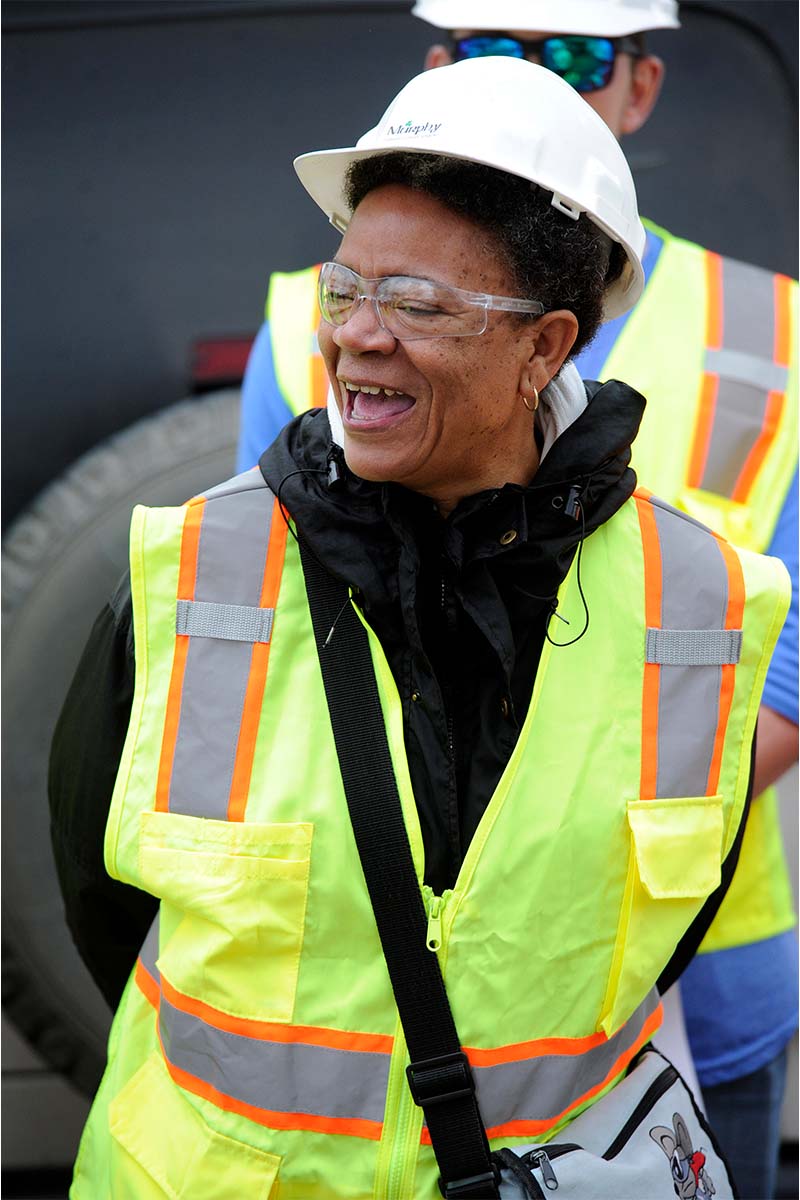

Construction is a varied field with opportunities for advancement. We prepare you for in the following jobs in the construction industry.
You will learn a variety of skills necessary for residential and commercial work sites, including: Blueprint Reading, Building Codes, Carpentry, Electrical, Masonry, and Plumbing
Introduces foundational level carpentry skills, basic residential construction systems, the importance of personal and workplace safety, and the role of carpenters within the construction industry.
Introduces the fundamentals of electrical trades and practices in residential application. Topics in this course include orientation to the electrical trade, electrical safety, basic electrical circuits, electrical theory, introduction to the National Electrical Code, device boxes, raceways and fittings, conductors and cables, basic electrical construction drawings, residential electrical services, electrical test equipment, and basic installation techniques.
Introduces common types of piping, their proper fitting, fixtures, and distribution systems. Topics include the plumbing trade and construction drawings; plastic, copper, cast-iron, and carbon steel piping; fixtures and faucets; introduction to Drainage, Waste, and Vent (DWV) systems; and water distribution systems.
Introduces the NCCER Masonry level one for the construction trades to include the fundamentals of basic masonry materials, equipment and tools, mathematical concepts used to calculate masonry units, specifications, codes, mortar, installation techniques, safety, and the career of masonry.
view in catalog
Upon completion of the Building and Construction Technology degree program, students should be able to:

Voices of PPSC
You have more resources than you do in a bigger university and you get help with anything you need.
Mario Rivera Garcia
Current Student
A program that prepares individuals to apply technical knowledge and skills to residential and commercial building construction and remodeling. Includes instruction in construction equipment and safety; site preparation and layout; construction estimating; blueprint reading; building codes; framing; masonry; heating, ventilation and AC; electrical and mechanical systems; interior and exterior finishing; and plumbing.
This Electrical Fundamentals certificate introduces the NCCER Electrical level one and level two fundamentals of electrical trades and practices in residential application. Topics include orientation to the electrical trade, electrical safety, basic electrical circuits, electrical theory, introduction to the National Electrical Code (NEC), device boxes, raceways and fittings, conductors and cables, basic electrical construction drawings, residential electrical services, electrical test equipment, and basic installation techniques. Additional focus on alternating current, theory and application, electric lighting, conduit bending, pull and junction boxes, conductor installations, cable tray, conductor terminations and splices, grounding and bonding, circuit breakers and fuses, and control systems and fundamental concepts.
This Electrical Advanced Applications Certificate introduces the NCCER Carpentry level three and level four advanced skills for the electrical trades to include load calculations for branch and feeder circuits, conductor selection and calculations for installation, practical applications of lighting, hazardous locations, overcurrent protection, distribution equipment, transformers, commercial electrical services, motor calculations, voice, data, and video systems, and motor controls. Additional focus on applications specific to health care facilities, standby and emergency systems, basic electronic theory, considerations for fire alarm systems, installing specialty transformers, advanced controls, Heating, Ventilation, and Air Conditioning (HVAC) controls, heat tracing and freeze protection, motor operation and maintenance, medium-voltage terminations/splices, and applications for special locations.
This Plumbing Fundamentals Certificate introduces the NCCER Plumbing level one and level two fundamentals of plumbing trades and practices in residential application to include common types of piping, their proper fitting, fixtures, distribution systems, construction drawings; plastic, copper, cast-iron, and carbon steel piping; fixtures and faucets; introduction to Drainage, Waste, and Vent (DWV) systems; and water distribution systems. Additional focus on offsets around obstructions, reading commercial drawings, installing and testing Drainage, Waste, and Vent (DWV) piping systems, installing roof, floor and area drains, servicing various types of valves, installation of fixtures, faucets, hot water systems and a discussion on fuel systems.
This Plumbing Advanced Applications Certificate introduces the NCCER Plumbing level three and level four advanced skills for the plumbing trades to include applied math, sizing and protecting the water supply system, potable water Supply treatment, types of venting, sizing Drain, Waste, and Vent (DWV) and storm systems, sewage sumps and sump pump, corrosive-resistant waste piping, compressed air, and service plumbing. Additional focus on business principles for plumbers, introductory skills for the crew leader, water pressure booster and recirculation systems, indirect and special waste, and hydronic and solar heating systems and practices for plumbing.
This Carpentry Fundamentals Certificate introduces NCCER Carpentry level one and level two foundational carpentry skills, basic residential construction systems, the importance of personal and workplace safety, and the role of carpenters within the construction industry. Additional focus on commercial drawings, cold-formed steel framing, exterior finishing, thermal and moisture protection, roofing applications, doors and door hardware, drywall installation, drywall finishing, suspended ceilings, window, door, floor, and ceiling trim, and cabinet installation.
This Carpentry Advanced Applications Certificate introduces the NCCER Carpentry level three and level four for the advanced skills in the construction trades. Topics include commercial properties of concrete, rigging equipment, rigging practices, trenching and excavating, reinforcing concrete, foundations and slabs-on-grade, vertical formwork, horizontal formwork, handling and placing concrete, and tilt-up wall systems. Additional focus on site layout differential leveling, site layout angular and distance measurement, advanced roof systems, advanced wall systems, advanced stair systems, introduction to construction equipment, introduction to oxyfuel cutting and arc welding, site preparation, and fundamentals of crew leadership.
This Masonry Fundamentals Certificate introduces the NCCER Plumbing level one and level two fundamentals of masonry trades and practices in residential application to include the fundamentals of basic masonry materials, equipment and tools, mathematical concepts used to calculate masonry units, specifications, codes, mortar, installation techniques, safety, and the career of masonry. Additional focus on residential plans and drawing interpretation, residential masonry, reinforced masonry, masonry openings and metal work, advanced laying techniques, effects of climate on masonry, and construction inspection and quality control.
This Masonry Advanced Applications Certificate introduces the NCCER Carpentry level three advanced skills for the masonry trades to include elevated masonry, specialized materials and techniques, repair and restoration, commercial drawings, estimating, site layout, distance measurement and leveling, and stone masonry. Additional focus to include estimating and scheduling installation types.
Faculty Contacts
Dave FrankmoreConnect with Admissions
We are here to help you get started and can answer your questions about going to college and becoming a student at Pikes Peak State College